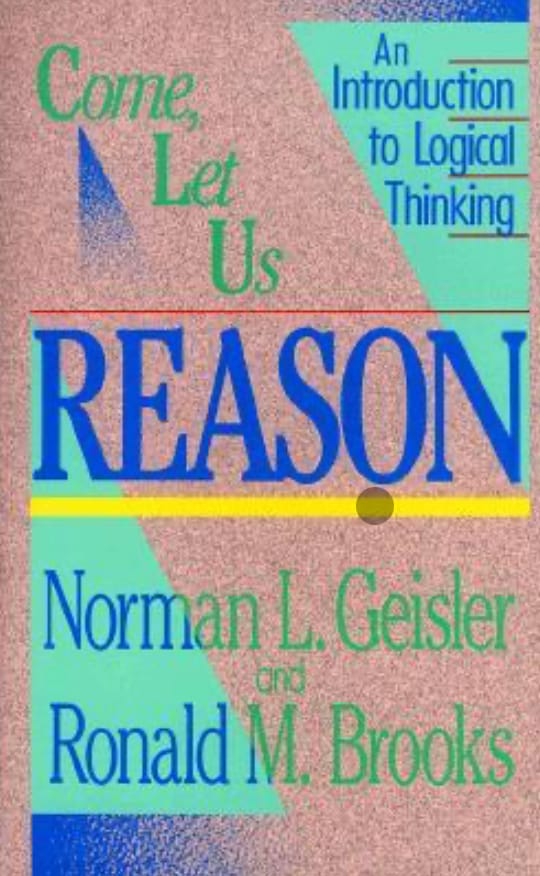Quick Review: Have you ever been in a conversation and realized you were talking past each other? Have you ever heard someone’s argument and know something is not right, but you are not sure what it is? Have you ever wanted to be able to speak more clearly and make your point persuasively? If your answer is yes to any of these questions, this book will help.
Amazon Bio: The perfect introductory textbook, this simplified study of logic prepares readers to reason thoughtfully and to spot illogic in an argument.
Amazon Link: Click here
Why Read This Textbook
Have you ever been in a conversation and realized you were talking past each other? Have you ever heard someone’s argument and know something is not right, but you are not sure what it is? Have you ever wanted to be able to speak more clearly and make your point persuasively? If your answer is yes to any of these questions, this book will help.
“Come, Let Us Reason: An Introduction to Logical Thinking” by Norman Geisler and Ronald Brooks provides a comprehensive guide to understanding and applying principles of logic from a Christian perspective.
Book Summary:
- Importance of Logic:
- Logic is essential for clear thinking and effective communication.
- Understanding logic helps to defend and explain the Christian faith rationally.
- Basic Concepts of Logic:
- Terms and Definitions: Clear and precise definitions are crucial in logical thinking.
- Propositions: Statements that are either true or false.
- Arguments: A series of propositions where some propositions (premises) support a conclusion.
- Types of Arguments:
- Deductive Arguments: Provide conclusive support for their conclusions if the premises are true.
- Inductive Arguments: Offer probable support for their conclusions, leading to strong or weak conclusions.
- Formal Logic:
- Syllogisms: Structured arguments with a major premise, minor premise, and conclusion.
- Validity and Soundness: An argument is valid if its conclusion follows logically from its premises; it is sound if its premises are true.
- Informal Logic:
- Fallacies: Common errors in reasoning that undermine the logic of an argument.
- Examples include ad hominem attacks, straw man arguments, and false dilemmas.
- Principles of Correct Reasoning:
- Law of Identity: A thing is what it is.
- Law of Non-Contradiction: A thing cannot be both true and false in the same sense at the same time.
- Law of Excluded Middle: A statement is either true or false, with no middle ground.
(This was my favorite part of the book. This is the basis if what most people call “common sense.”)
- Application to Christian Apologetics:
- Use logical reasoning to defend the truth of Christian doctrines.
- Address objections to Christianity by exposing logical fallacies and presenting sound arguments.
- Practical Tips for Logical Thinking:
- Be Clear: Strive for clarity in all arguments and definitions.
- Be Consistent: Ensure that your arguments do not contain contradictions.
- Be Coherent: Make sure that your arguments flow logically from premises to conclusion.
- Exercises and Practice:
- Engage in exercises that challenge you to identify fallacies, analyze arguments, and construct logical proofs.
- Practice logical thinking in everyday situations to develop stronger reasoning skills.
By integrating these principles, Geisler and Brooks aim to equip readers with the tools necessary for rigorous and clear logical thinking, enhancing both personal reasoning abilities and the effectiveness of Christian apologetics.
Quick Warning
This book is not for the faint of heart. It is also not for someone looking for casual reading. As a full confession, the first time I read this book, I ended up skimming most of it. The ideas were too complex for the light reading I had planned. So, when you decide to tackle it, have proper expectations. Also, take your time and learn slowly. There is no race and you get no prizes for finishing quickly. Let it soak in. Once you do, it will be like seeing the Matrix for the first time. You’ll begin to hear, see, and read conversations very differently.










